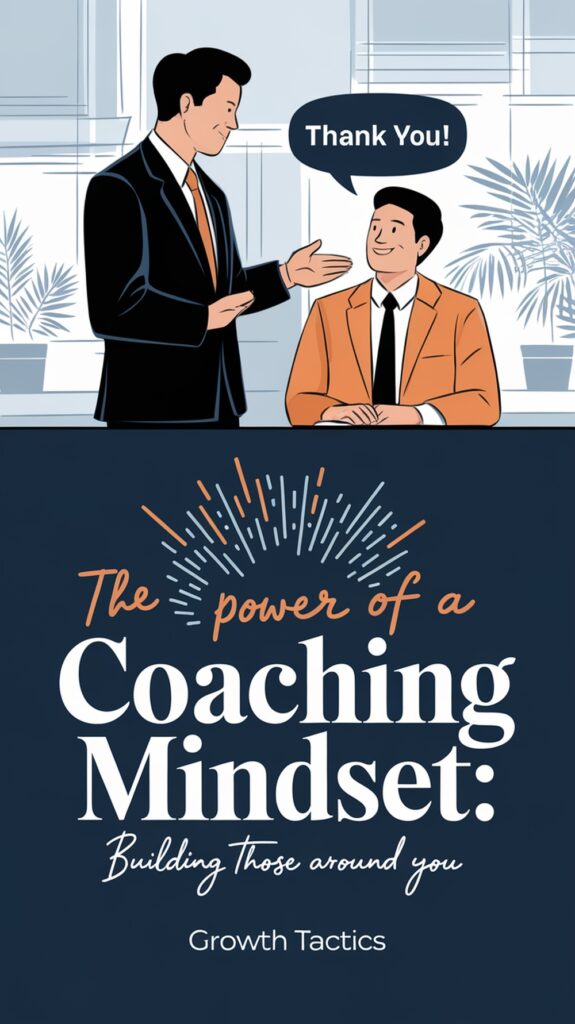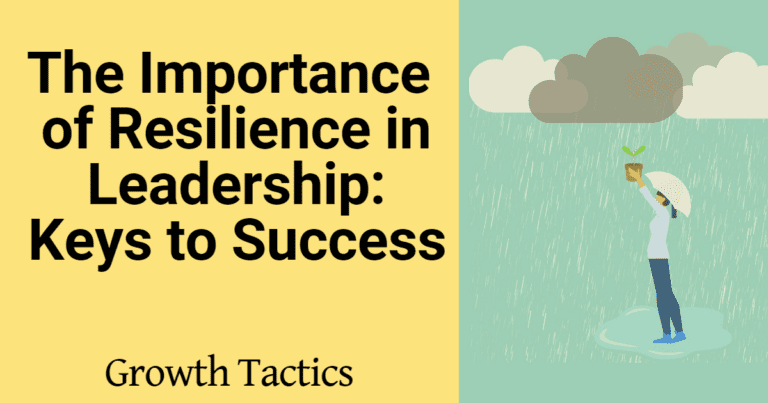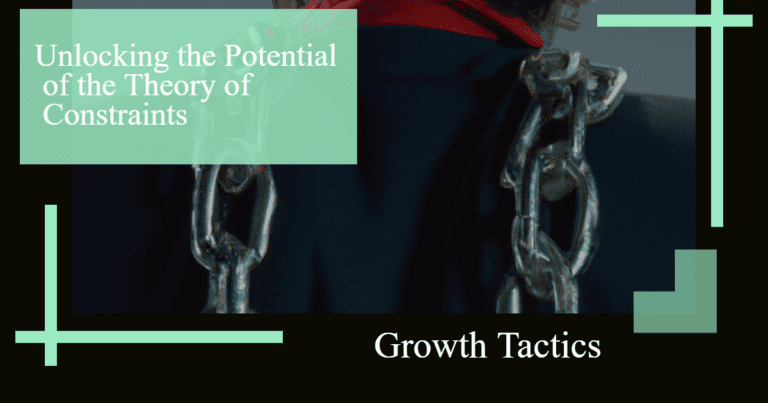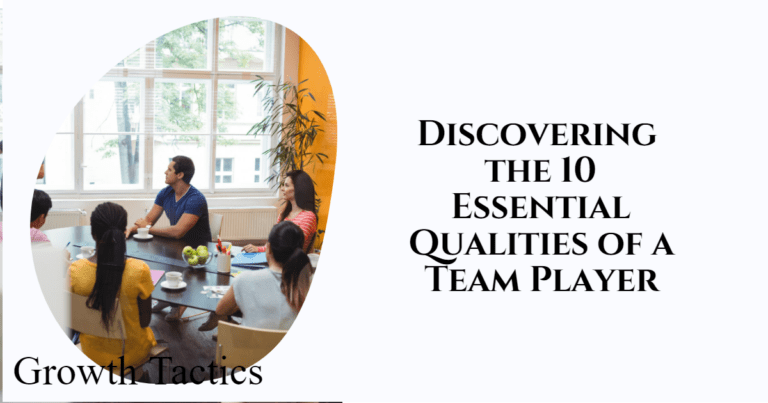Do you want to help those around you be their best versions?
Whether you’re trying to inspire your organization or develop yourself, a coaching mindset can open the door to unrealized potential.
It can make a lasting difference!
Jump To Section
What is a Coaching Mindset?

A coaching mindset is an approach that focuses on growth, collaboration, and self-reflection. It inspires people to experiment, innovate, and collaborate in exceptional ways. This kind of mindset builds trust and respect and creates a culture in which learning is prioritized above everything else.
By staying intentional and mindful, those who have a coaching mindset set themselves up to thrive, as well as the people they work with, personally and professionally.
Definition and Core Principles
At its roots, a coaching mindset is one that embraces openness, curiosity, and a profound dedication to being client-centered. This mindset is deeply rooted in principles such as empathy, flexibility, and a focus on the client’s resourcefulness. These values distinguish it from traditional leadership approaches that tend to lean toward directive problem-solving.
|
Core Principles |
Coaching Mindset |
Traditional Leadership |
|---|---|---|
|
Empathy |
Prioritizes understanding and connection |
Focuses on outcomes or efficiency |
|
Flexibility |
Adapts to individual needs and context |
Follows predefined strategies |
|
Client Resourcefulness |
Encourages self-discovery and solutions |
Provides solutions or instructions |
Why a Coaching Mindset Matters in Growth
With curiosity at its core, a coaching mindset shifts the focus away from judgment and towards helping individuals unleash their full potential. Cultivating a coaching mindset helps people develop a growth mindset, where they learn to see challenges as chances to grow and improve. This mindset is more about teaching the person how to fish instead of giving them a fish.
Key Characteristics of a Coaching Mindset

This mindset creates a space for clarity and creative thinking, which are both critical to individual and collective growth. At its core, a coaching mindset starts with psychological safety. It nurtures powerful leadership, honoring the client as the expert, creating more productive relationships and results.
1. Client-Centered Approach
Placing the client’s goals and aspirations at the center is the heart of effective coaching. A client-centered approach emphasizes active listening, empathy, and a personalized strategy, which are core to the coaching experience.
As an illustration, a coach who’s helping an entrepreneur with a challenging business model may first help them clarify their desired vision before working on the operational hurdles.
Actionable Steps:
- Ask open-ended questions to uncover deeper insights.
- Practice reflective listening to show understanding.
- Adapt strategies to align with the client’s unique context.
- Encourage clients to set their own benchmarks for success.
2. Focus on Development Over Solutions
Good coaching focuses on development rather than immediate solutions. This method allows clients to decide what would work best for them, promoting their autonomy and long-term adaptability.
As an example, coaching a team leader to develop strong communication skills not only gains immediate impact but establishes an ongoing organizational advantage. This is where patience comes in, true development takes time.
3. Belief in Client Resourcefulness
Trusting clients to figure out their solutions fosters self-confidence and pushes imaginative solutions to problems. This kind of belief goes hand in hand with empowering clients to own their journey.
It supports an atmosphere that’s cooperative and free of judgment.
4. Emphasis on Positivity and Optimism
The power of positivity fosters resilience and hope, equipping clients to bounce back from disappointments. When coaches model an emphasis on positivity and optimism, they help create an environment in which problems seem solvable.
This enriches their participants’ experience.
5. Respect for Client Expertise and Choices
Honoring each client’s unique experiences builds a strong relational foundation for trust and collaboration. The humility to understand that clients are the experts of their own lives goes a long way toward creating an ethical coaching practice.
This approach builds trust and rapport.
Essential Skills for Fostering a Coaching Mindset

To foster a coaching mindset, you need to learn and practice a variety of interpersonal and intrapersonal skills. These skills build trust, improve communication, and foster growth on personal and professional levels.
Active Listening for Deeper Understanding
Active listening is the foundation for great coaching, requiring undivided attention to the speaker with an absence of judgment or interruption. This skill helps coaches draw out the deeper needs, goals, and challenges of their clients. Simply paraphrasing what clients say back to them helps demonstrate that you are listening.
Asking open-ended, clarifying questions demonstrates your desire for understanding. For instance, if a client expresses workplace stress, paraphrasing their concerns (“So, you’re feeling overwhelmed by competing deadlines?”) invites further exploration. Active listening plays a crucial role in building trust and rapport, the basis of all coaching relationships.
Cultivating Empathy and Emotional Intelligence
Empathy, the ability to understand and share another’s feelings, is a critical component in establishing the strong, supportive environment that effective coaching thrives in. Coupled with emotional intelligence, the awareness and regulation of one’s own and others’ emotions, coaches can approach difficult conversations with care and intention.
Here’s a quick comparison:
|
Empathy | Emotional Intelligence |
|---|---|
|
Focuses on feeling with clients |
Focuses on managing emotions (coach and client) |
|
Builds connection and trust |
Enhances problem-solving and adaptability |
Practicing Self-Reflection and Self-Awareness
Coaching in general requires coaches to not only have self-awareness but to practice it regularly. Regular self-reflection, whether by journaling or through mindfulness practices, increases this self-awareness.
Balancing Feedback with Encouragement
Delivering critique in a way that encourages growth means knowing when to combine criticism with positive praise. Constructive criticism proactively addresses things that need to be improved in a way that doesn’t erode confidence.
As a coach, I may say something like “you’re doing awesome work on time management! Next, let’s move to how we can prioritize those tasks more effectively so you are getting the right tasks done.” This client-centric approach fosters commitment and accountability and keeps the client actively and willingly engaged in the process.
Strategies to Embody a Coaching Mindset
It takes a lot of self-awareness, presence, and dedication to this work. Here are some strategies to build your coaching mindset.
Engage in Continuous Learning and Growth
Coaching is rooted in curiosity and adaptability. Continuous improvement is a key aspect of any successful coach. This can range from workshop attendance to certifications to peer learning.
For instance, taking courses specifically focused on active listening or emotional intelligence will further hone your skills. Whether it’s through reading coaching literature, attending webinars, or engaging with professional networks, these experiences increase your knowledge base and confidence.
Just as learning develops your own practice toolbox, it enhances your capacity to meet a wide array of client needs.
Develop Emotional Self-Regulation Techniques
Before you can coach others, you need to regulate your own emotions. Emotional self-regulation helps you stay composed under pressure, ensuring your presence supports others’ growth.
Mindfulness exercises or other stress-management techniques, such as progressive muscle relaxation, help develop this skill over time. For example, a coach who has a regular mindfulness practice could use three deep breaths to ground themselves before responding in a tough conversation.
This emotional self-regulation will help you be more flexible and engaged in the moment.
Mentally Prepare for Coaching Sessions
Preparation creates a positive coaching relationship and encourages productive conversations. When setting an intention in advance, whether it be to encourage clarity, build trust, or something else, it builds alignment.
Methods such as visualization or even basic breathing techniques can help align your mind. A coach preparing for a leadership client might visualize guiding them through reflective questioning, ensuring clarity and engagement throughout the session.
Leverage Intuition to Enhance Interactions
Intuition supports analysis, enabling coaches to understand invisible needs. By noticing non-verbal cues and engaging in deep listening, you’ll gain a clearer understanding of clients’ feelings.
For instance, if you hear an uncertainty in their voice, that might lead you to ask, “What do you feel unsure about here?” When you trust and refine your intuition, you deepen your coaching practice.
Seek External Support When Needed
When appropriate, seek out external support. These mentors, supervisors, or groups of peers give you perspective, constructive feedback, and support.
To illustrate, when you are struggling with a difficult case, talking it through with a mentor can help you uncover blind spots. Coaching organizations, like the International Coach Federation (ICF), provide helpful resources.
Overcoming Barriers to Adopting a Coaching Mindset
Moving from traditional roles into the coaching mindset requires more than just acquiring new skill sets. It entails adopting a leadership mindset rooted in curiosity, trust, and collaboration. Yet, to take this approach, leaders sometimes have to overcome huge internal and external barriers.
Identifying Common Challenges in Shifting Perspectives
Resistance to change is one of the biggest barriers I’ve seen. One significant challenge is changing management habits. Many leaders come from a long history of traditional, directive management. These styles can be at odds with the relational, trust-building aspects of coaching.
These fixed mindsets, believing that one’s abilities are unchangeable, are barriers to our growth. For example, a leader may not want to commit to coaching if they don’t believe their team can improve. Fear of being vulnerable makes this even more difficult. Coaching requires tough conversations, where leaders are willing to say they don’t have the answers.
To overcome these, leaders can begin with simpler, lower-stakes coaching interactions. This approach allows them to gradually develop confidence in the coaching process.
Addressing Cultural and Diversity Considerations
Building an inclusive environment fosters greater psychological trust. This allows team members from all backgrounds to feel valued and empowered.
|
Challenge |
Strategy |
|---|---|
|
Language barriers |
Use simple, clear communication |
|
Differing power dynamics |
Foster equality in discussions |
|
Unconscious biases |
Commit to ongoing education about cultures |
Managing Personal Biases and Limitations
Personal biases are always present and create blind spots that can taint the coaching process. Methods of reflection such as journaling or soliciting feedback from peers are crucial to reveal personal blind spots.
Humility and self-awareness are essential. Recognizing personal limitations gives leaders the freedom to grow with their teams.
Turning Failures into Learning Opportunities
Failures are one-hundred percent guaranteed but absolutely necessary in creating and building a coaching mindset. Turning failures into learning opportunities builds grit.
Enhancing Team Performance Through Leadership
At its essence, a coaching mindset fosters an environment of trust and accountability among your team. Leaders who take this coaching approach elevate others. They rarely micromanage, fostering a culture that encourages their team to become entrepreneurial in their work.
A manager willing to listen closely to their team’s challenges may find hidden, underappreciated strengths. Through open-ended questioning, these leaders inspire peak performance. This approach to leadership builds both personal and professional relationships within a team.
It encourages inclusivity and respect for one another, fostering more productive collaboration towards common objectives.
Driving Innovation and Creative Problem-Solving
Innovation is best cultivated in workplaces where a coaching mindset supports curiosity, questioning, and experimentation. By adopting a coaching mindset through asking better questions, leaders empower teams to question assumptions and search for more effective solutions.
Through this lens, our most complex challenges are redefined as opportunities for greater collaboration and creative problem-solving.
Improving Communication and Conflict Resolution
These key elements of a coaching mindset, active listening and empathy, promote positive, open communication and encourage the de-escalation of workplace tension. Leaders committed to having purposeful coaching conversations are better equipped to handle conflict in a healthy way through the lens of seeking understanding.
With practice, this technique becomes a way of deepening connections while building trust.
Building a Coaching Culture in Organizations
A coaching culture focuses on development from the top down and bottom up. Leaders should model this behavior by being self-aware, encouraging peer-to-peer coaching, and fostering an environment of ongoing learning.
Organizational benefits of a coaching culture include increased employee engagement, decreased turnover, and improved organizational agility and resilience.
To implement this culture, organizations can:
- Provide training in coaching techniques.
- Encourage reflective practices like journaling or feedback sessions.
- Recognize and reward coaching behaviors in leadership.
Practical Tools to Develop a Coaching Mindset

Building a coaching mindset takes deliberate practice that encourages self-awareness, curiosity, and a desire to improve. In this digital age, there are plenty of tools to help with the process.
Using Technology to Support Coaching Practices
Technology offers important solutions for creating more cohesive and strategic coaching practices. Platforms such as Trello or Asana make it simple to assign and track tasks. Apps like CoachAccountable allow coaches to manage session objectives and results.
Virtual coaching is easier to conduct now that we have video conferencing tools such as Zoom. These resources not only improve organization but also facilitate remote collaboration, making coaching more adaptable to diverse needs.
Implementing Structured Feedback Mechanisms
Implementing structured feedback mechanisms is especially important because feedback is essential to continue to refine and improve coaching practices. Structured systems, like anonymous surveys or 360-degree feedback, allow for direct, honest feedback.
Platforms such as SurveyMonkey or Google Forms make it easy for coaches to collect important information. Feedback drives iteration and innovation, helping to keep strategies effective and aligned with what works.
Conclusion
By prioritizing active listening, empathy, and a shared commitment to collaboration, we’re building the conditions in which trust and potential can thrive. It’s less about having the answers. It’s not about giving people the answers, it’s about asking the right questions to help them find their own answers.
Whether in our personal or professional lives, this coaching mindset leads to better relationships, greater mutual understanding, and ultimately more impactful results. As with any new skill, it requires practice and persistence, but the dividends are more than worth the investment.

Frequently Asked Questions
What is a coaching mindset?
A coaching mindset is an approach aimed at helping, supporting, and empowering others to succeed and reach their full potential. It promotes deep listening, curiosity in questioning, and creating space for development.
Why is a coaching mindset important in professional settings?
It fosters a team-based approach to working, deepens engagement, enhances clarity of purpose, and increases team confidence. By taking the time to nurture their team’s development, leaders with a coaching mindset can boost productivity and success across the board.
What are the key characteristics of a coaching mindset?
Top characteristics are empathy, curiosity, patience, adaptability, and a growth mindset. These qualities build the trust necessary to create a safe space for risk-taking and growth.
How can I develop a coaching mindset?
Learn to actively listen, use open-ended questions, and concentrate on future solutions rather than past problems. Request constructive feedback and make a commitment to lifelong learning to develop the skills that matter most.
What are common barriers to adopting a coaching mindset?
Common barriers to adopting a coaching mindset are simply not having the time, fixed mindset, fear of failure, and fear of change. Overcoming these takes an intentional self-awareness and a willingness to shift perspectives.
How does a coaching mindset impact personal growth?
It does so by developing self-awareness, emotional intelligence and creative problem-solving. When you assist others in their growth process, you are sharpening your own leadership and interpersonal skills.
Are there tools to help build a coaching mindset?
Yes. Journaling, role-playing, and models such as GROW (Goal, Reality, Options, Will) are proven ways to build these skills. Regular reflection and actively seeking mentorship further develop your coaching prowess.







